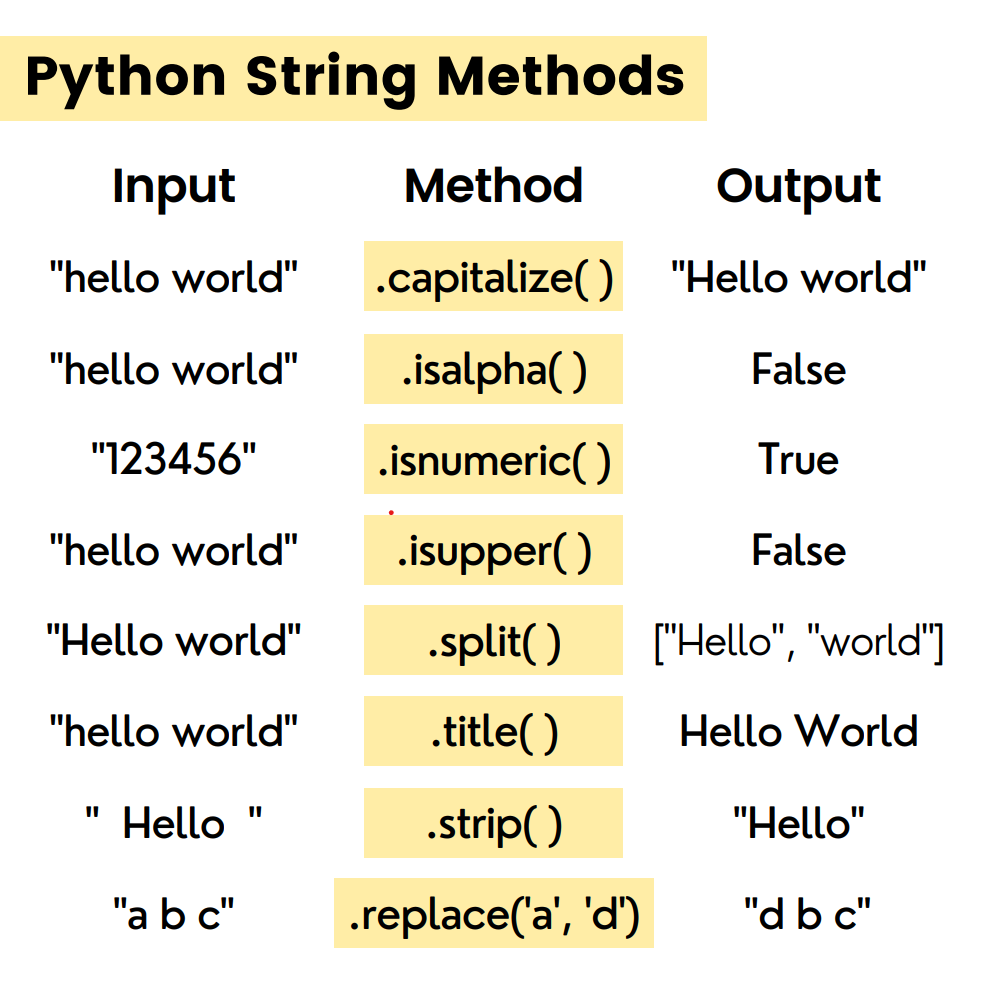Python String Methods 🐍
#pythontips #pythonprogramming #pythonforbeginner
Python provides a wide range of string methods that allow you to manipulate and work with strings. Here are some commonly used string methods in Python:
capitalize(): Converts the first character of the string to uppercase and converts all other characters to lowercase.casefold(): Converts the string to lowercase, suitable for case-insensitive comparisons.center(): Returns a centered string by padding it with specified characters.count(): Returns the number of occurrences of a substring in the string.encode(): Returns the encoded version of the string.find(): Searches for a specified substring within the string and returns the index of its first occurrence.index(): Similar tofind(), but raises an exception if the substring is not found.isalnum(): Checks if all characters in the string are alphanumeric.isalpha(): Checks if all characters in the string are alphabetic.isdigit(): Checks if all characters in the string are digits.islower(): Checks if all characters in the string are lowercase.isnumeric(): Checks if all characters in the string are numeric.isspace(): Checks if all characters in the string are whitespace.istitle(): Checks if the string follows the rules of a titlecased string.isupper(): Checks if all characters in the string are uppercase.join(): Concatenates elements of an iterable (e.g., a list) into a single string using the specified separator.lstrip(): Removes leading whitespace from the string.rstrip(): Removes trailing whitespace from the string.partition(): Splits the string at the first occurrence of a specified separator and returns a tuple.splitlines(): Splits the string at line breaks and returns a list of lines.swapcase(): Converts lowercase characters to uppercase and vice versa.title(): Converts the first character of each word in the string to uppercase.zfill(): Pads the string with zeros (0) on the left to a specified width.


